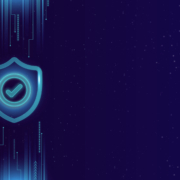Mastering Technology For Hybrid Workplaces
The modern workplace has evolved, with hybrid work becoming the new standard for organizations worldwide. While this model provides flexibility and efficiency, it also introduces new security and technology challenges that businesses must address to maintain productivity, compliance, and cybersecurity. Without a strong technology framework, organizations risk data breaches, communication gaps, and operational inefficiencies.
At SecureWon, we specialize in secure and scalable IT solutions tailored for hybrid work environments. Here’s how businesses can leverage technology to build a resilient and secure hybrid workforce.
Strengthening Cybersecurity for a Distributed Workforce
Hybrid work increases the attack surface for cybercriminals. With employees accessing company data from various locations, businesses must adopt a security-first approach to protect sensitive information. Key cybersecurity strategies include:
- Zero Trust Security Model: Require continuous verification for users and devices before granting access to corporate systems.
- Multi-Factor Authentication (MFA): Reduce the risk of unauthorized access by adding extra security layers beyond passwords.
- Endpoint Detection & Response (EDR): Secure company devices with advanced monitoring to detect and contain cyber threats in real time.
- VPN & Secure Remote Access: Encrypt remote connections to safeguard business data from unauthorized interception.
- Security Awareness Training: Educate employees on recognizing phishing attacks, social engineering threats, and safe online practices.
A comprehensive cybersecurity framework ensures that remote and in-office employees can work securely without exposing critical business assets.
Leveraging Cloud Technology for Seamless Operations
A cloud-first strategy is essential for hybrid work, enabling employees to collaborate, access data, and perform tasks from any location. Businesses should implement:
- Secure Cloud Storage (OneDrive, SharePoint, Google Drive): Centralized document management with access controls.
- Cloud-Based Collaboration Tools (Microsoft 365, Google Workspace): Integrated communication and productivity suites for remote and in-office teams.
- Virtual Desktop Infrastructure (VDI): Provide employees with a consistent and secure work environment across multiple devices.
- Disaster Recovery & Backup Solutions: Protect business continuity by ensuring critical data is backed up and quickly restorable in case of cyber incidents.
Cloud-based solutions offer scalability, security, and accessibility, making them a vital component of a hybrid IT infrastructure.
Implementing Secure Collaboration and Communication Tools
Effective hybrid teams require real-time communication and seamless collaboration tools that align with business security policies. Recommended solutions include:
- Encrypted Video Conferencing (Microsoft Teams, Zoom, Google Meet): Ensure meetings remain private and secure.
- Secure Messaging Platforms (Slack, Microsoft Teams): Enable quick communication while maintaining data protection.
- Project Management Software (Asana, Trello, Monday.com): Streamline workflows and track team progress.
- Enterprise-Grade Email Security: Prevent phishing, spoofing, and malware attacks that target remote workers.
By integrating security-enhanced collaboration tools, businesses can maintain efficiency while reducing cyber risks.
Standardizing IT Support and Device Management
Hybrid workplaces require a standardized approach to IT support and device management to minimize disruptions and maintain security compliance. Organizations should:
- Implement Remote IT Support & Monitoring: Ensure technical issues are resolved quickly, no matter where employees are located.
- Use Mobile Device Management (MDM) Solutions: Secure company-owned and BYOD (Bring Your Own Device) setups with remote monitoring and security controls.
- Deploy Regular Security Patching & Updates: Keep devices and software updated to mitigate vulnerabilities.
- Provide Secure Hardware & Accessories: Standardize IT equipment, such as laptops, monitors, and secure docking stations for remote workers.
By establishing a centralized IT support structure, businesses can improve operational efficiency and reduce downtime.
Enhancing Physical Office Technology for Hybrid Work
Even with remote capabilities, businesses must optimize physical office spaces to accommodate hybrid employees. Considerations include:
- Hot Desking & Workspace Booking Systems: Allow employees to reserve office desks as needed.
- Smart Meeting Rooms: Equip conference rooms with high-quality audio, video conferencing, and AI-powered automation for seamless remote collaboration.
- IoT-Enabled Office Automation: Utilize smart lighting, climate control, and security systems to create a modern, tech-enabled office environment.
A well-equipped office ensures that in-office time remains productive and collaborative for hybrid teams.
Developing Clear Hybrid Work Policies and Compliance Standards
Beyond technology, businesses must establish hybrid work policies that address security, compliance, and employee expectations. Essential policies include:
- Data Protection & Compliance Measures: Ensure adherence to industry standards such as HIPAA, GDPR, and CMMC for regulated industries.
- Remote Work Security Guidelines: Define acceptable use policies for company devices, cloud access, and personal device security.
- Collaboration & Productivity Expectations: Establish clear guidelines for virtual meetings, availability, and response times.
A well-defined hybrid work policy aligns technology with business goals and security best practices.
Partnering with a Trusted Managed Security Provider
Navigating the complexities of hybrid work requires expert IT management and cybersecurity oversight. Partnering with a Managed Security Services Provider (MSSP) like SecureWon ensures that businesses have access to:
- 24/7 Security Monitoring & Incident Response
- Advanced Threat Detection & Risk Management
- Proactive IT Support & System Optimization
- Custom Hybrid Work Strategies Tailored to Business Needs
With expert guidance, organizations can focus on growth and innovation while maintaining a secure and resilient hybrid workplace.
SecureWon at its core is a national technology services company. What separates us from other technology service providers is our commitment to providing superior documentation and accurate reporting of your organization’s security posture. This attention to detail and quality of our services is what drives us. Contact us today for a free assessment of your technology infrastructure.











